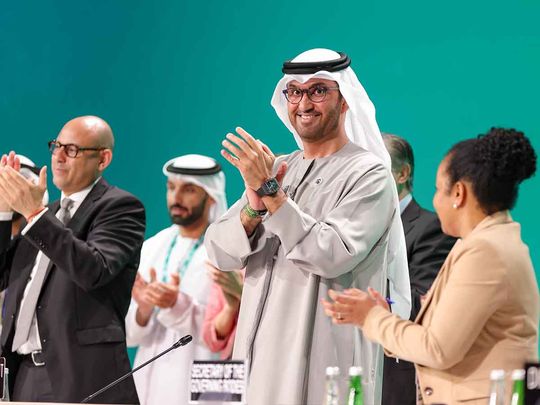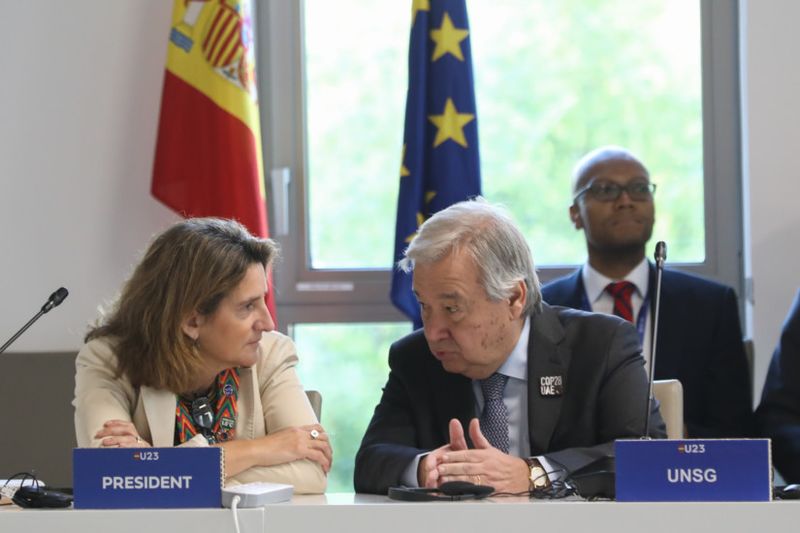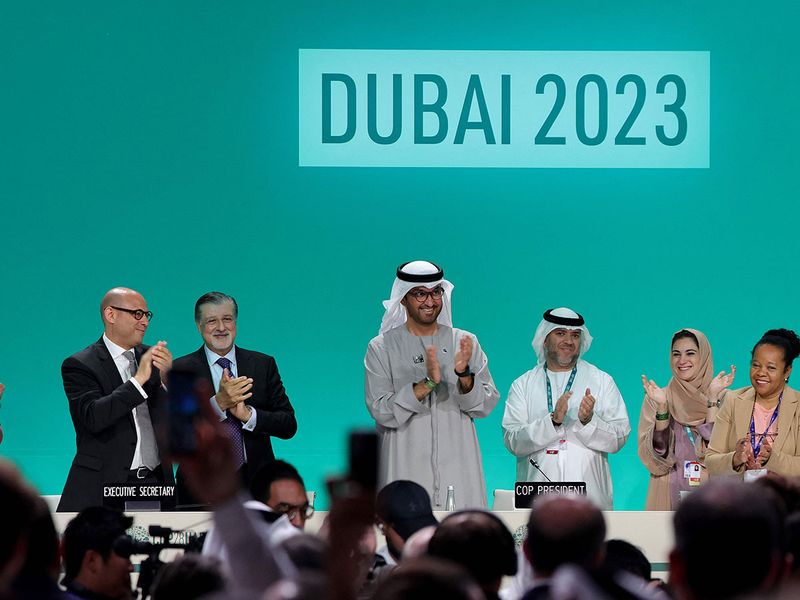
On Wednesday, the COP28 deal was unveiled, urging nations to expeditiously shift away from reliance on fossil fuels. This agreement signifies a more resolute affirmation of the global dedication to reducing greenhouse gas emissions.
We take an in-depth look at some of the highlights:
What was achieved at COP28?
The United Nations Climate Change Conference (COP28) concluded in Dubai with a groundbreaking agreement that marks the “beginning of the end” of the fossil fuel era. After two weeks of meticulous negotiations at the summit, the global community reached a historic climate deal, issuing an unprecedented call for a ‘transition away from fossil fuels’.
Other key achievement is the establishment of the world’s first ‘Global Stocktake,’ a pivotal mechanism designed to elevate climate action before the close of this decade. The overarching goal is to maintain the global temperature limit at 1.5°C, a critical threshold in combating climate change.
What does the agreement say about fossil fuels?
The agreed-upon text of the COP28 deal “recognises the need for deep, rapid, and sustained reductions in greenhouse gas emissions in line with 1.5°C pathways.” Specifically addressing fossil fuels, the agreement urges countries to “(Transition) away from fossil fuels in energy systems, in a just, orderly, and equitable manner, accelerating action in this critical decade, aiming to achieve net-zero emissions by 2050 in accordance with scientific findings.”

What is the Global Stocktake?
The Global Stocktake, considered the central outcome of COP28, encapsulates all negotiated elements. It serves as a blueprint for countries to formulate robust climate action plans, due by 2025.
Acknowledging the urgency of the climate crisis, the stocktake emphasises the need to cut global greenhouse gas emissions by 43% by 2030, compared to 2019 levels, to stay on track for the 1.5°C target.
Parties are urged to focus on global-scale initiatives, including tripling renewable energy capacity and doubling energy efficiency improvements by 2030. Additionally, measures to accelerate the phase-down of unabated coal power, eliminate inefficient fossil fuel subsidies, and drive a just transition away from fossil fuels are highlighted. Developed countries are called upon to lead this transition.
What about the exact role of renewables?
The deal advocates for a substantial increase in renewable energy capacity, calling for a global tripling of such capacity and a doubling of the global average annual rate of energy efficiency improvements by 2030.
This is a significant victory, because it is the world’s first acknowledgement of the ambitious scale required in this decade to establish a new, sustainable clean energy system. Not only does this recognition mark a pivotal moment, it emphasises that renewables and efficiency must now take precedence in every energy and climate plan.

What is the way forward?
Call for urgent action
The COP28 outcomes underscore the urgent need for immediate action to turn pledges into tangible results. Governments and businesses are called upon to implement measures without delay, aligning with the Global Stocktake’s objectives. The emphasis on a just, orderly, and equitable transition away from fossil fuels highlights the responsibility of developed nations to lead this transformative process.
Critical role of climate finance
To bridge the financial gap, COP28 deal calls for the reform of multilateral financial structures and the exploration of innovative sources of finance. The goal is to establish a ‘new collective quantified goal on climate finance’ by 2024, with a baseline of $100 billion per year, forming a crucial building block for national climate plans to be delivered by 2025.
Enhanced transparency and continued collaboration
Negotiations on the ‘enhanced transparency framework’ at COP28 set the stage for a new era in implementing the Paris Agreement. The transparency reporting and review tools developed will be crucial in ensuring accountability and progress.
The next two years leading to COP29 and COP30 will be critical, requiring governments to establish a new climate finance goal and present comprehensive nationally determined contributions aligned with the 1.5°C temperature limit.
What are the major takeaways from COP28?
COP28 signals a turning point in global efforts to combat climate change. The establishment of the Global Stocktake, commitments to climate finance, and the emphasis on a just transition away from fossil fuels mark significant milestones.
As the world looks ahead to COP29 and COP30, the focus is going to remain on tangible, transformative actions that align with the goals set forth in Dubai. The collective determination to achieve a 1.5°C world must guide every commitment on finance, adaptation, and mitigation, reflecting the shared responsibility to secure a better future for our planet.








